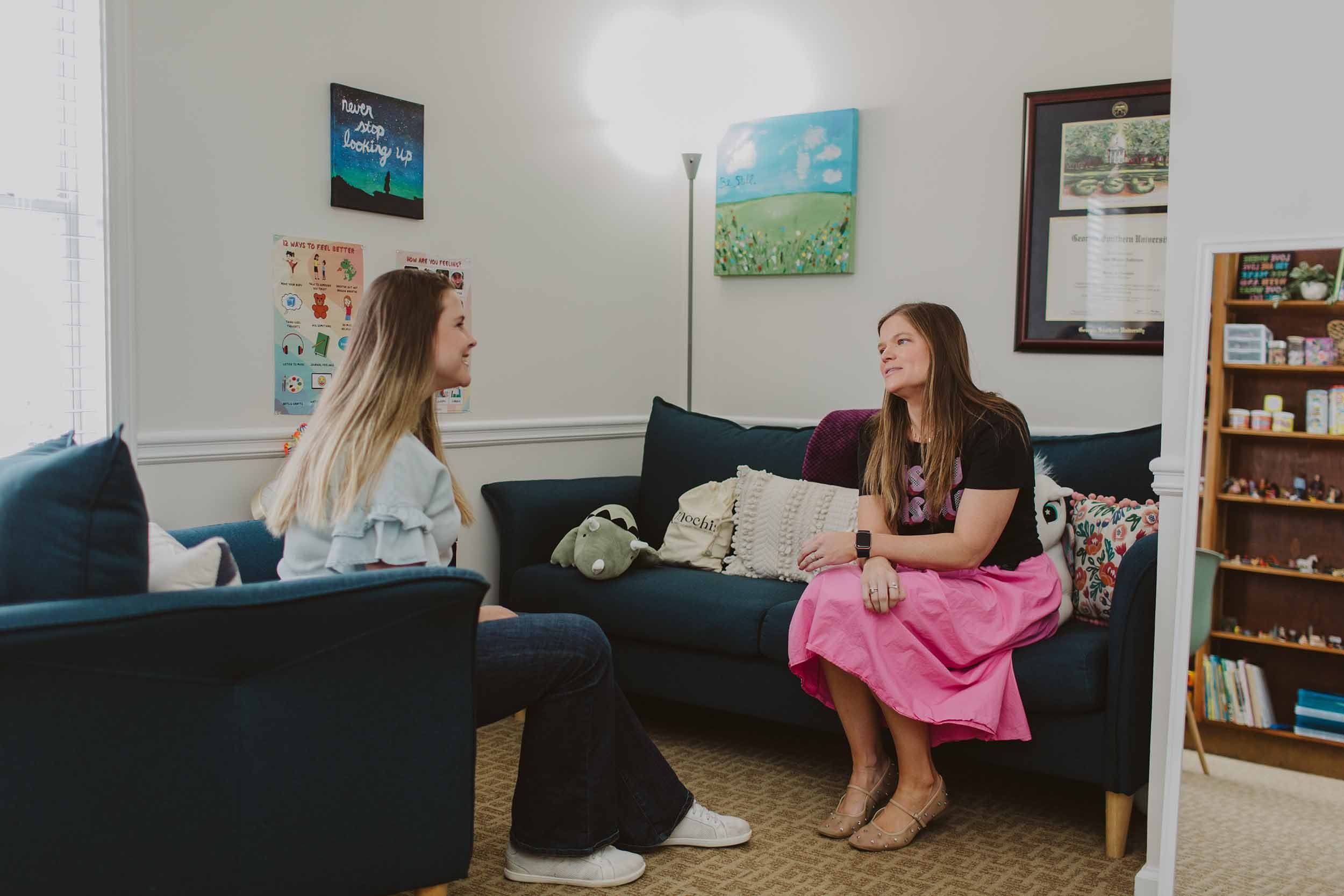
Postpartum Therapy
The postpartum period, while often filled with joy, can also present significant stress, fatigue, and even depression or anxiety for many women. Our highly trained therapists are knowledgeable about the broad range of postpartum issues, including but not limited to postpartum depression (PPD), postpartum anxiety, postpartum OCD, and postpartum psychosis.
Our therapy sessions focus on providing emotional support, coping strategies, and effective therapeutic tools to help mothers manage and alleviate symptoms they may be experiencing. We customize each therapy plan to the individual needs of the client, ensuring they receive the most beneficial and appropriate level of care.
Frequently Asked Questions
Questions we get about post-partum therapy and counseling sessions.
-
Yes, we have specialized training and extensive experience in supporting individuals through the unique challenges of postpartum mental health. Our team is well-versed in addressing postpartum depression, anxiety, birth trauma, and the emotional transition into parenthood. We use evidence-based approaches such as Cognitive Behavioral Therapy (CBT), mindfulness, and trauma-informed care specifically tailored to the postpartum period. Our goal is to create a safe, compassionate, and supportive space where you feel understood, empowered, and cared for during this important stage of life.
-
Therapy with us is a collaborative, supportive process tailored to your unique needs and goals. We believe in creating a safe and nonjudgmental space where you feel heard, respected, and empowered to grow.
Our approach draws from several evidence-based methods, including:
Cognitive Behavioral Therapy (CBT): Helps you understand and shift unhelpful thought patterns and behaviors.
Person-Centered Therapy: Focuses on building a strong, trusting relationship and honoring your inner strengths and wisdom.
Solution-Focused Therapy: Emphasizes your goals and highlights practical steps and existing resources to help you move forward.
Depending on your preferences and what you’re working through, we may integrate these approaches to create a personalized experience that supports meaningful, lasting change.
-
Yes, absolutely—you are welcome to bring your baby to sessions. We understand that finding childcare can be challenging, especially during the postpartum period, and we want therapy to be as accessible and comfortable as possible. Whether your baby needs to nap, feed, or just be close to you, we’re here to support you in a way that feels manageable and stress-free. Your well-being and your baby’s comfort are both important to us.
-
Postpartum depression and anxiety can show up in different ways, and it’s important to know you’re not alone. These experiences are common—and treatable.
Some signs of postpartum depression may include:
Persistent sadness, hopelessness, or feeling emotionally numb
Loss of interest or pleasure in things you used to enjoy
Difficulty bonding with your baby
Changes in appetite or sleep (beyond typical new-parent fatigue)
Feeling overwhelmed, worthless, or like you’re not a good parent
Postpartum anxiety might look like:
Constant worry or fear, often focused on your baby’s health or safety
Racing thoughts or difficulty relaxing
Physical symptoms like a racing heart, nausea, or tension
Trouble sleeping even when your baby is asleep
Feeling on edge or unable to “turn off” your thoughts
Therapy can help by providing a safe, supportive space to process what you're feeling and develop tools to manage symptoms. We use evidence-based approaches like Cognitive Behavioral Therapy (CBT), Person-Centered Therapy, and Solution-Focused Therapy to help you build coping skills, challenge unhelpful thoughts, and feel more grounded and supported in your role as a parent. Healing is possible—and you don’t have to do it alone.
If you ever have thoughts of harming yourself or your baby, or feel like you’re in crisis, please seek immediate help. You can call 911, go to your nearest emergency room, or contact the National Maternal Mental Health Hotline at 1-833-943-5746, available 24/7. You deserve support, and help is always available.
-
Our session fees range from $150 to $180, depending on the provider you work with. While we are not currently in-network with insurance companies, we’re happy to provide a superbill that you can submit to your insurance for possible out-of-network reimbursement.
We understand that therapy is an investment, and we want it to be as accessible as possible. We occasionally have sliding scale spots available—please don’t hesitate to ask about current availability.
We accept cash, credit cards, HSA/FSA cards, and checks for payment.
If you have any questions about fees, insurance, or payment options, we’re here to help walk you through it.
